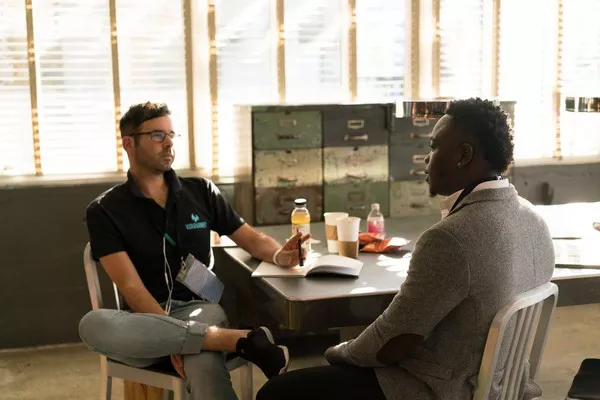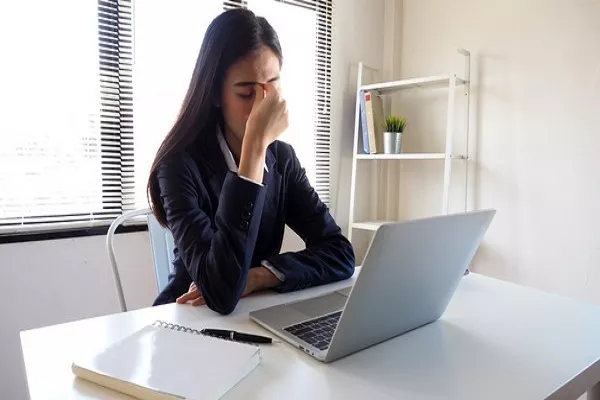Phobia is a term used to describe an intense, irrational fear of something. There are many different types of phobias, and one common type is a fear of being watched. This fear can manifest in a number of ways, including a reluctance to leave the house or participate in social situations. In this article, we will explore what this phobia is, its possible causes, and how it can be treated.
What is fear of being watched?
The fear of being watched is also known as scopophobia or social anxiety disorder. It is a type of anxiety disorder characterized by an intense fear of being watched, judged, or evaluated by others. People with this phobia often experience physical symptoms such as sweating, trembling, and heart palpitations when placed in situations where they feel they are being watched.
1. Symptoms of scopophobia
People who suffer from scopophobia may experience a range of physical and emotional symptoms. These include:
- Anxiety
- Panic attacks
- Sweating
- Trembling
- Rapid heartbeat
- Shortness of breath
- Nausea
- Dizziness
- Blushing
- Avoidance of eye contact
- Fear of speaking in public
- Fear of eating in front of others
2. Triggers of scopophobia
- Past negative experiences: People who have had negative experiences in social situations, such as being bullied or humiliated, may develop a fear of similar situations in the future.
- Genetics: Scopophobia can run in families, suggesting that there may be a genetic component to the condition.
- Brain chemistry: Imbalances in certain brain chemicals, such as serotonin and dopamine, have been linked to anxiety disorders such as scopophobia.
- Cultural factors: Cultural beliefs and expectations can also play a role in the development of scopophobia. For example, cultures that place a high value on social status or conformity may be more likely to foster social anxiety.
- Personality traits: People who are naturally shy or introverted may be more prone to developing scopophobia.
It’s important to note that each person’s experience with scopophobia may be different and the triggers can vary from person to person.
3. Coping mechanisms for scopophobia
Here are some coping mechanisms that may help with Scopophobia:
- Seek professional help: A mental health professional can provide effective treatment options such as cognitive behavioral therapy (CBT), exposure therapy, and/or medication.
- Practice relaxation techniques: Deep breathing, meditation, and progressive muscle relaxation exercises can help reduce anxiety and promote relaxation.
- Challenge negative thoughts: Identify the negative thoughts you have about being watched and challenge them by questioning their accuracy and evidence.
- Gradual exposure to feared situations: Gradually expose yourself to situations where you fear being watched, starting with less anxiety-provoking scenarios and building up over time.
- Build a support network: Reach out to friends and family members who can offer support and encouragement.
- Participate in activities that boost your confidence: Engage in activities that make you feel good about yourself, such as exercise, art or music, or volunteering.
- Use positive affirmations: Repeat positive statements to yourself to build self-confidence and reduce negative self-talk related to being watched.
Remember that coping with Scopophobia takes time and effort, and it’s important to be patient and kind to yourself during the process.
What causes fear of being watched?
The causes of scopophobia are not well understood. However, it is believed to be a combination of genetic, environmental, and psychological factors.
1. Genetics
There may be a genetic predisposition to anxiety disorders, including scopophobia. Studies have shown that people with a family history of anxiety disorders are more likely to develop them themselves.
2. Environmental factors
Environmental factors such as childhood experiences of trauma or abuse can also contribute to the development of anxiety disorders. For example, a person who was teased or bullied during childhood may develop a fear of being watched or judged by others.
3. Psychological factors
Psychological factors such as low self-esteem or a tendency towards negative thinking can also contribute to the development of anxiety disorders. People with scopophobia may have a distorted perception of themselves or others, which can lead to feelings of shame or embarrassment.
How can fear of being watched be treated?
Scopophobia is a treatable condition, and there are several effective treatments available. These include therapy, medication, and lifestyle changes.
1. Therapy
Therapy is one of the most effective treatments for anxiety disorders, including scopophobia. Cognitive-behavioral therapy (CBT) is a type of therapy that focuses on changing negative thoughts and behaviors. This can help people with scopophobia to challenge their fears and learn new coping mechanisms.
2. Medication
Medication can also be used to treat anxiety disorders, including scopophobia. Antidepressants and anti-anxiety medications can help to reduce symptoms of anxiety, but they should only be used under the guidance of a healthcare professional.
3. Lifestyle changes
Lifestyle changes such as exercise, meditation, and relaxation techniques can also be helpful in managing anxiety. These can help to reduce stress levels and promote feelings of relaxation and calmness.
In conclusion, the fear of being watched is a common type of phobia that can have a significant impact on a person’s life. It can be caused by a variety of factors, including genetics, environmental factors, and psychological factors. However, there are effective treatments available, including therapy, medication, and lifestyle changes. With the right help and support, people with scopophobia can learn to manage their anxiety and improve their quality of life.
Related Topics:





























